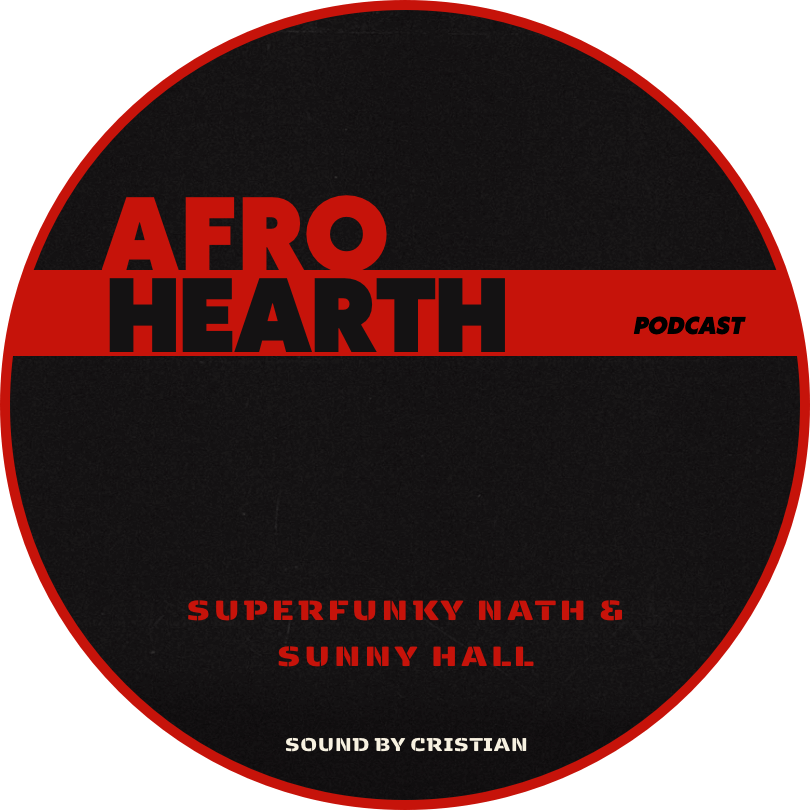
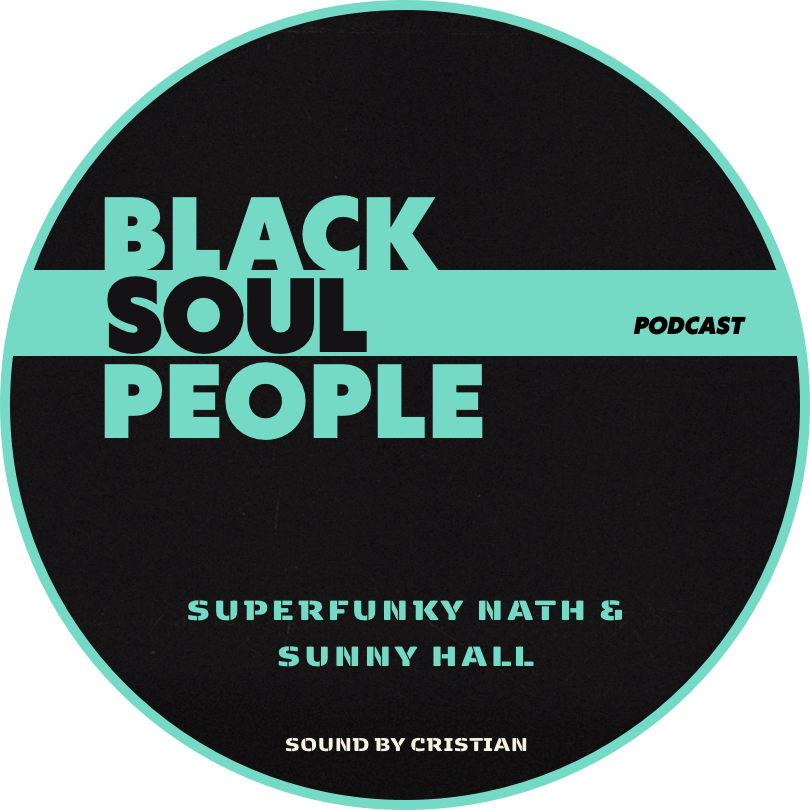
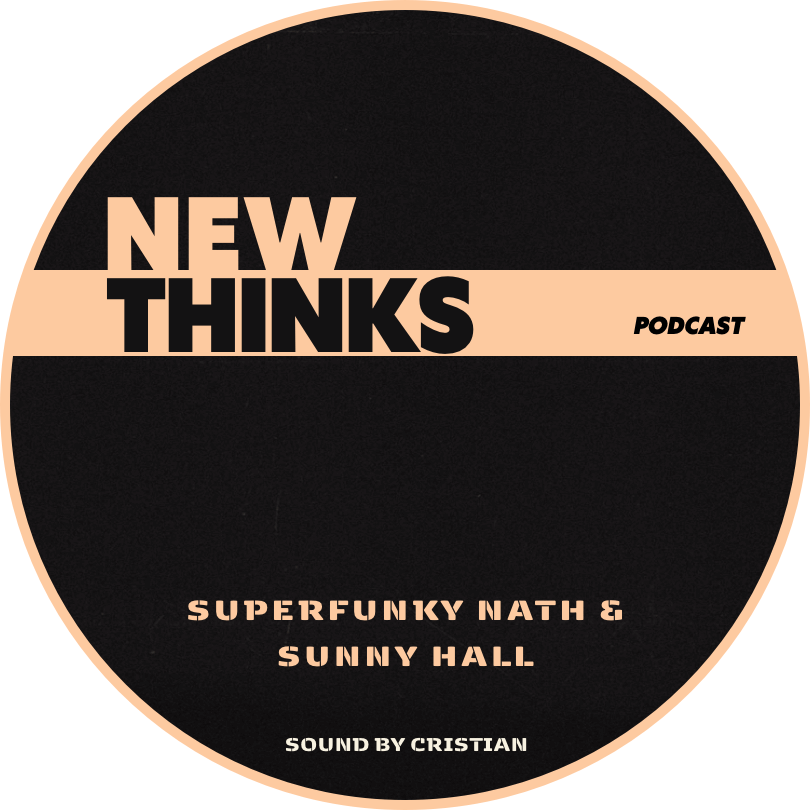
I don’t come from the world, I come from the Earth. Voila …
I believe, I am someone who has learned to detach herself from material things, who has learned that nothing is set in stone.
Someone who has learned that it takes a life to learn and another to think.
I’m someone who knows about the privileged situation, I have had in this terrible world and as far as possible, tries not to be blind or look the other way, in order to face the difficulties and challenges of those who didn’t have such privileges.
I want to be happy…
I am very restless, I have some kind of anxiety and I get busy doing many things, to calm it down.
I want to be happy, indeed but not in nonsense.
The kind of things, I want to do to bring happiness in my life :
be provocative, launch the debate and annoy the innocent Whiteness, these types of things…
In the provocation is where I am happy.
My principal activity is music, I am a singer.
What I do, is give concerts, I always try to have in my musical projects, what interests me the most. As an example, in the last project with my sextet, all compositions are about women and made by women, and I have made arrangements to bring this repertoire forward, because women are far behind, they are lacking visibility in music and in everything else.
Then, the other thing in my life is activism, the lawyer in me, nowadays I’m not exercising as such, because I’m in other stories but basically, I’m a musician.
I also create things like performances now, I’m running a project called “Blacken the wikipedia”which is to teach people how to edit pages in wikipedia, to include people such as the women from the Diaspora who do not exist or are not visible. It is to give the public at large references because, today it is the online encyclopedia, where most people will read to study and search for information so, it is important to have there a Black presence available.
I always talk about the Black condition, in this case as well, within the wikipedia, to acknowledge the AfroDiaspora and diversity.
Because this page is made up of 16% women, the other great percentage is 85% of men and within that percentage, I believe there is only 0.02% in which there are African and Diaspora people present. As a result, what started out of curiosity, has become very important for me. The fact of modifying pages is essential in this encyclopaedia which is becoming universal, because I realised the little presence of the Diaspora and that we do not count for the world.
From another point of view I have to look for other alternative ways of education because wikipedia can’t be the only option.
We surely have to be in 2 things, create: alternative media on one side and flood the wikipedia on the other, modifying the articles that have been drafted in a patriarchal, anti-feminist, racist and colonialist way and all those things can be modified. That is another battlefield that is very important to me.
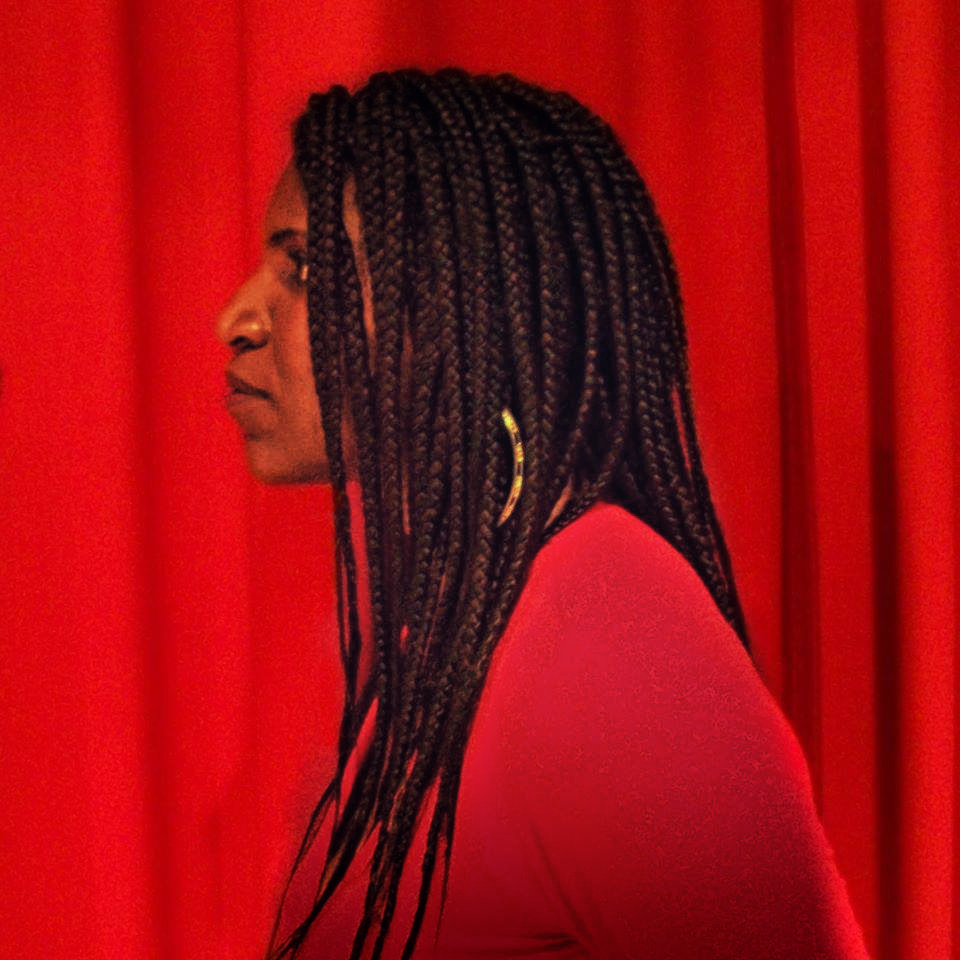
I arrived in Lyon first, but I stayed there very little time.
As I was coming from the University of Havana, finishing my studies and singing in the choir where I was a soloist, the director of the choir in Lyon told me:
« You sing very well, you could sing classical. »
And I told him:
« Look, I’m studying law and I’m finishing here. »
And I said no, and he replied :
« Anyway, give me your details, because we are organizing something. »
And I gave to him, a year later, I was invited to participate in an international gathering of 200 choristers in Lyon, it was the year 1997, an incredible experience a few years ago, now… From there, I was given the opportunity to enter the Lyon Conservatory to study classical singing, but I had already worked in Cuba with a group of students and artists, who had come to bring computers to the University of Havana, and out of the blue, I had a circle of friends who was writing to me from Europe. I was in Lyon but I went to Geneva…
They told me :
« In Lyon you don’t know anyone, here in Geneva there is a conservatory, and if you manage to enter, we will help you, we’ll give you a hand. » …
And on the way back to Lyon they spoke on my behalf, they wrote a letter to the Conservatory of Geneva with a recommendation, then I went with a letter in hand, I did the exam and that’s how I entered the conservatory, obviously, nothing to do with law.
That came later, because here in Barcelona, I have a friend, Mane Ferret who is a philologist, singer and poet, someone I have a relationship with since my youth, she was the first person who taught me to sing traditional Cuban repertoire being still in Cuba. And at some point, someone tells me:
« Fulana is in Barcelona ».
And I came here to Barcelona, where I have militant friends of the Uruguayan Communist Party and other people from many places.
So, I come, I meet her, we start singing together again, and we start doing concerts here, we go back and forth, she was going to Geneva,
I was coming here. That was about the year 2007, 2008.
Little by little, I was coming more often here and I began to meet more people, in the world of militancy, in the Negritude, on the intellectual side of the movement.
But the relationship, I have now with this city is about 4 years old, a lot more recent. Because, I kept coming and going then, 4 years ago, I decided to stay put. I went to the conservatory again to take classes in singing and harmony. And I got back in touch with the girls from Black Barcelona, to do things with them with Tanquem els CIES, as well.
In Geneva, I was already in the group against the detention centres, so the first thing I did was to look for this group, being a lawyer I am interested in working with the undocumented people of these centres.
The connection is more about the family that I have, my sister is there and as incredible as it seems, living in Barcelona, I met Parisian people who were great militant fighters, activists, who happened to go back home at that time. I stayed intimately connected to these people, thanks to what we created here in Barcelona…
Thanks, to these people, I met here, I’m now connected to La Colonie and it is in Paris that I have made the connection with the actual place, these people are extremely committed and that’s where we are at the moment.
I ended up doing the workshop and the performance, in Paris, it was incredible, I loved it. The whole experience was very good and I repeated in Barcelona, you have to blacken wherever the wind takes you…
To go back to the workshop in Paris, it was a great experience, there were student of history and art, all racialized and doing this article all together; we did a critical reading, anti-colonialist, anti-racist, to modify it, a reading from another point of view, with sources, to change things because they were lies and omissions. Because many times, racism is by omission, it’s about erasing and sweeping under the carpet…
About this article there were things to say that were not there, the period there were made was clearly marked, in which context and by whom. For the record, this is very important, because our history is made of things that have not been said about us, because they don’t want to listen to us, but because it is in the wikipedia, people would take notice…
In spite of everything, this page has very complicated things, because of its Eurocentric view of the world which is the reason why it has racist criteria. Also, it is a political battle from the perspective of knowledge, this is something I have discovered doing this workshop, that’s why I find it very interesting.
People with an academic background, students, adding many others such as ourselves who know how to look for unspoiled information, don’t put it in wikipedia, because they don’t know how to do it, and they don’t realise it is becoming the world encyclopedia.
We already had, the White women saying :
«We are not in wikipedia there are only men, there.»
«Imagine, the racialized people at large!»
Then, I started to learn with a lady in Geneva who has a wikipedia project called “Women without pages”, then there is another group called “Art and feminism”.
I started to look and I thought, there must be something, searching and searching, I found a group from New York run by Afro-descendants women, they have set up a platform called AFRO CROWD, running courses to edit a page, and they gave me thousands of names from the Afro Diasporic people of the world by countries covering all sorts of areas and sectors.
Sheer madness! And I thought, that’s me! That’s my thing and I wrote to them, and they responded, the next minute. They sent me tutorials, so I would improve to teach better. And I was in Geneva learning within the Whiteness scheme but with my Diasporic references, so great, good stuff, and that’s why I’m ecstatic at the moment.
The term AfroEuropean doesn’t suit me very much.
As, I was listening last thursday to Aida Bueno Sarduy in a talk given about sexual dissidence, I totally agreed with her about what she was explaining concerning the Diaspora. Slavery has made us, re-formulate and re-situate ourselves in another context, because we had to survive as a commodities first and later on as human beings. Our way of thinking, of seeing ourselves, having a total different construction, to the way an African or a European was originated or influenced, because we came from another and very different experience.
As African descendants, We are no longer that African, and we are not European, this is my argument, to consider myself 100% AfroCaribbean.
Surely, I am AfroEuropean in some ways, after 20 years in Europe, and of course all of those things that one acquires like languages, will pass through you even if you don’t want them to, it can’t be avoided, but I still insist on being an AfroCaribbean…
There is always something that I have in mind, people always say:
« CUBANS!! »
And I say:
« If in 3 or 4 centuries of slavery, they didn’t manage to take away Black people’s joy, and they could keep it as the only precious possession hey had, I have to keep it until the end »
With the European sadness, I have nothing to do or in common, this thing about AfroEuropeanness does not fit me, it does not fit me at all…
It is also an experience with racism, because racism is also lived widely in Cuba and in my time when I was living there, classism didn’t exist.
Basically, there was a racism that was not allowed by the state, people used heavily racist expressions, but they were not condemned, there were normalised, and you couldn’t talk about racism openly, because they would say :
« No, because Cuba is a socialist country »
but how could it not be ?
The institutions wouldn’t tell you at face value : “you are Black, do not enter”, it wasn’t apartheid, but still it did exist.
Then of course, the only difference is that with the revolutionary process there was educational access, in spite of how I lived through it, because they say :
« Oh, but you had access to education. »
Then if I’m going to start a race, I come with crutches and will see who wins. So, when they talk about that, I say : as generations passed, maybe my grandfather started on crutches, my father kept limping and I already had both legs. But the others ran faster than me, and they are the ones in power in Cuba, because they confuse equality with equity.
I speak in a simple manner, so people understand well, what Cuba’s process is about. There, it happened more often than not that I was the one in the middle being the only Black person or going to the conservatories and see one or two other like me, it was very complicated. But at the same time, with the educational process, there were many of us who ran afterwards, coming out of what was supposed to be a slave mentality, to transcend a learned hopelessness, thinking that one will never become something or that one can not be as one wants.
So, I think this is something that is achieved, when you have access to education more or less, equal but not equitable.
To get there or get somewhere, some situations are not only affected by the social and economic landscape there are also historical and emotional as well as psychological aspects.
When I read F. Fanon, I understood from my great-grandmother up to me, I understood the whole psychological process, it was unbelievable.
And I realised that there is something in me, even without a clear picture or understanding, that was rebelling against this kind of legacy of mental slavery and devaluation that Black people internalize.
A self-depreciation marked by the external environment and situations, which reaffirm it.
In Cuba there is racism with men, with women not so much in comparison, if you are Black, they stop you every now and then. It is like that and I freak out, because in France and in Switzerland, this is known as the”delit de faciès”, but in Cuba they couldn’t care less, however it is a complete racist act and totally normalised.
There is a well-known White singer who is a humorist and is very critical, and he wrote a song about this. In short, what I want to tell you is, that basically in Cuba there are a lot of racist postulates that are more than normalised in the midst of the Socialist revolution.
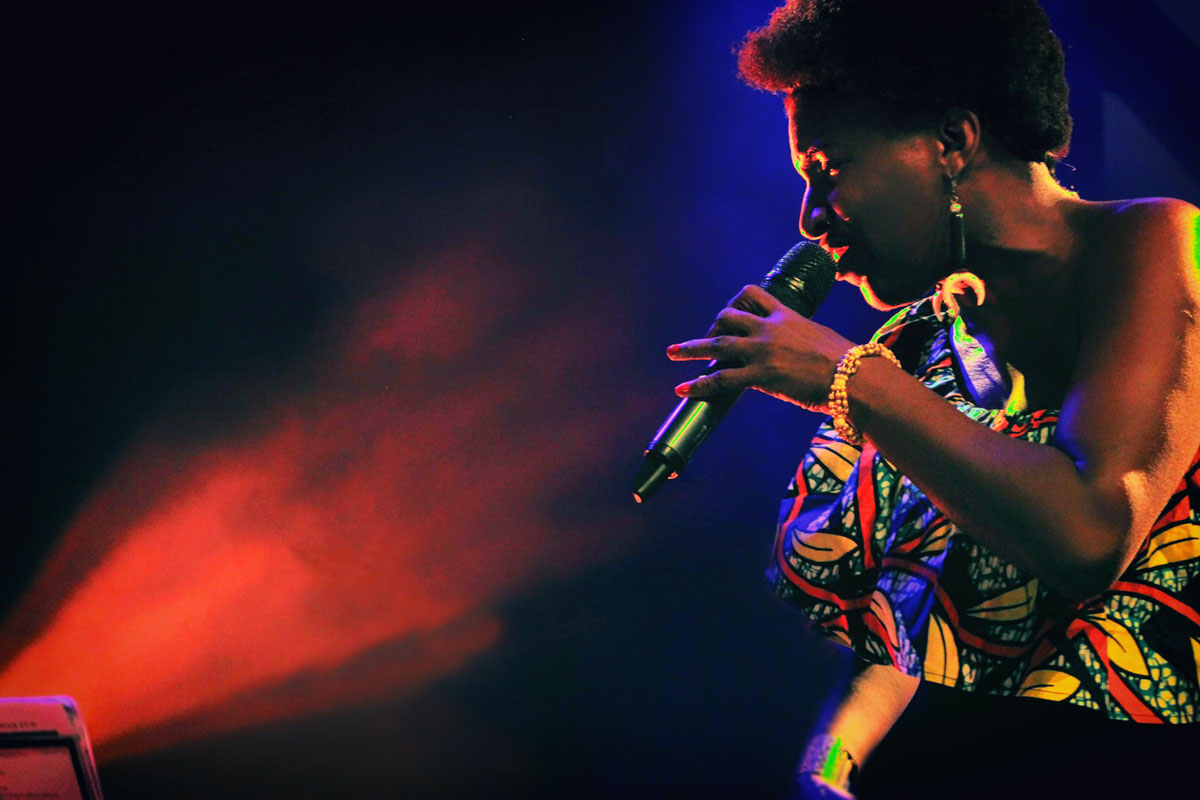
I arrived here, I had just disembarked and I did not understand much of my surroundings, the integration concept was foreign to me as I had never left Cuba before. And little by little, I was finding myself, and I was making sense of a lot more.
From my point of view, I could have integrated, because somehow I learned the language. If I had followed the classical path having in mind the integration process with my master in international law, I would have become a lawyer, winning thousands and thousands, forgetting my origins, my struggle and my history. But I didn’t go that route because it’s not who I am, not my way of living, for me life is :
“I have to do things in the now”.
I don’t think, I emancipated myself, because I am still in this system and in some way, even though I fight, I am part of this chain.
If there is such a thing called emancipation, I think it’s about a thought which tries to be free, what I can certainly tell you, is that I have managed to take possession of myself. I didn’t empower myself, I took over myself, with what I want to be and what I want to fight. I try to keep that conviction wherever I am, in Europe or in Cuba, it is about conserving what I achieved.
None of these 3 concepts work for me, emancipation, integration, empowerment, it is about taking control of my path, my desires, my objectives. And I’m doing it from a privileged position because, I study, I have a house, I travel, I have papers and the goal is to not shut my eyes to the things that occur around me.
What happens is that I have seen so many hard experiences around me, that I am ashamed to say that something difficult has happened to me.
Of course, there are things that hurt you, things that mark you, things that teach you. But, I consider that I haven’t lived anything hard, next to what other people have lived on the roads to migration. I arrived as the
immigrant who had a qualification with her letters, then it gives you access to places.
I don’t know how to define love, because I don’t recognize myself in the ideal of love. I have always been at a point, where I don’t recognize the the exclusivity of love in a couple situation. I don’t know if it’s to love, or
appreciate, care, cherish in many different ways various persons.
Then, there is a feeling of identification, from personal experience, loyalty, emotional and psychological connection and in some ways
intellectual compatibility.
When it comes to love towards people at large, I am very much in love with people in general. I receive people, the way they come with what
is there, I don’t shut people out, I am a lover of human relations.
A friend of mine wrote a book, in one of the chapters he talks a little about me. He says :
« She has a lethal weapon with this bright smile that she possesses, she
disarms all the prejudices put before her. »
I have my sister who is very strong.
Yes, what I have are friends that cook for me because I cook really bad.
I have so many friends that I can’t complain, it isn’t such a dense circle of people, but their presence is deeply felt. And my people know my defects because I don’t hide them, because I don’t pretend to be perfect, what you see it’s what you get.
They are very good friends, people who have given me a tremendous hand, the people I work with, with whom I do things, are people of the heart.
A long time ago, I decided that the life I wanted, I would share it with the people I love, people who are compatible with me and if not, I don’t have time.
My objectives are with the issue of racism and Negritude, these are capital and essential points for me, I don’t give way with these things.
I follow the Yoruba belief or religion or Ocha’s rule, it’s a bit of the legacy that we have from our slaves ancestors. I’m not deeply into it, at the same time, I don’t practice.
I am a person who has it, who believes it, who lives it, because it isn’t about worship, so I have the sensation to live with my dead ancestors.
I spend my life laughing, anyway…
I have this older brother who loves to sit with us, to open his mouth and talk nonsense, he’s cracking me up.
Now, that you tell me this, I remind myself of these moments where we are, my sister, my mother, myself and my sister-in-law, all together, and he starts on talking nonsense mode, just to see us laugh. It has been a regular recurrence since I was little, now it happens still on the phone, I still burst out laughing, today…
Ivonne was awarded Edith the first prize of the CONTINUMM 2018 contest for its contribution in wikipedia.
This prize is organized by the Equality Department of the University of Geneva in collaboration with the association “Les sans page”s as part of the exhibition CONTINUUM: LGBTIQ Stories and Knowledge.
This interview was made possible thanks to the collaboration of Anne Cath.
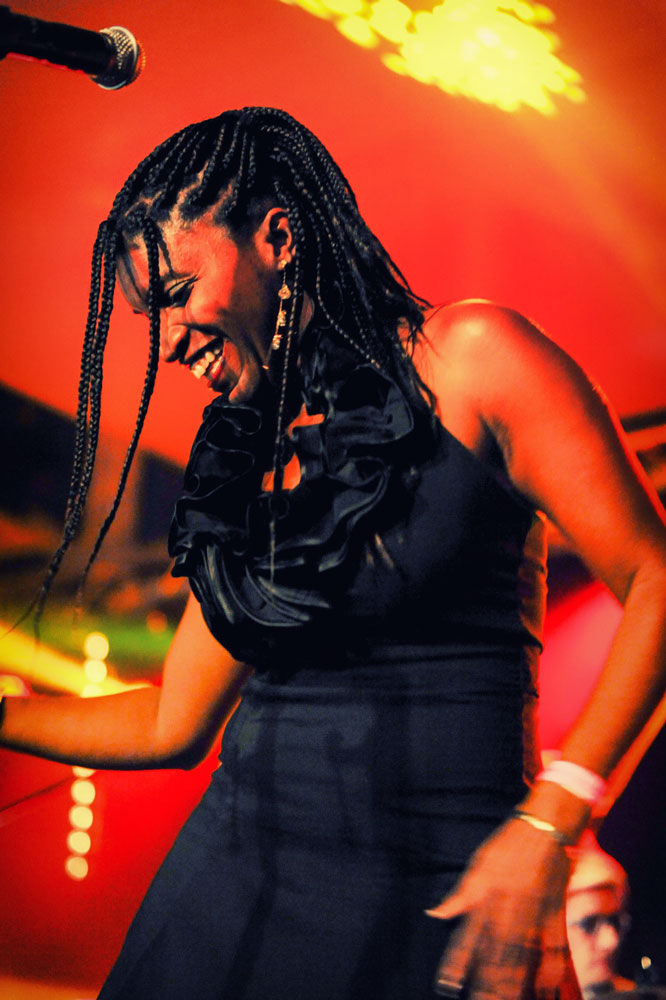
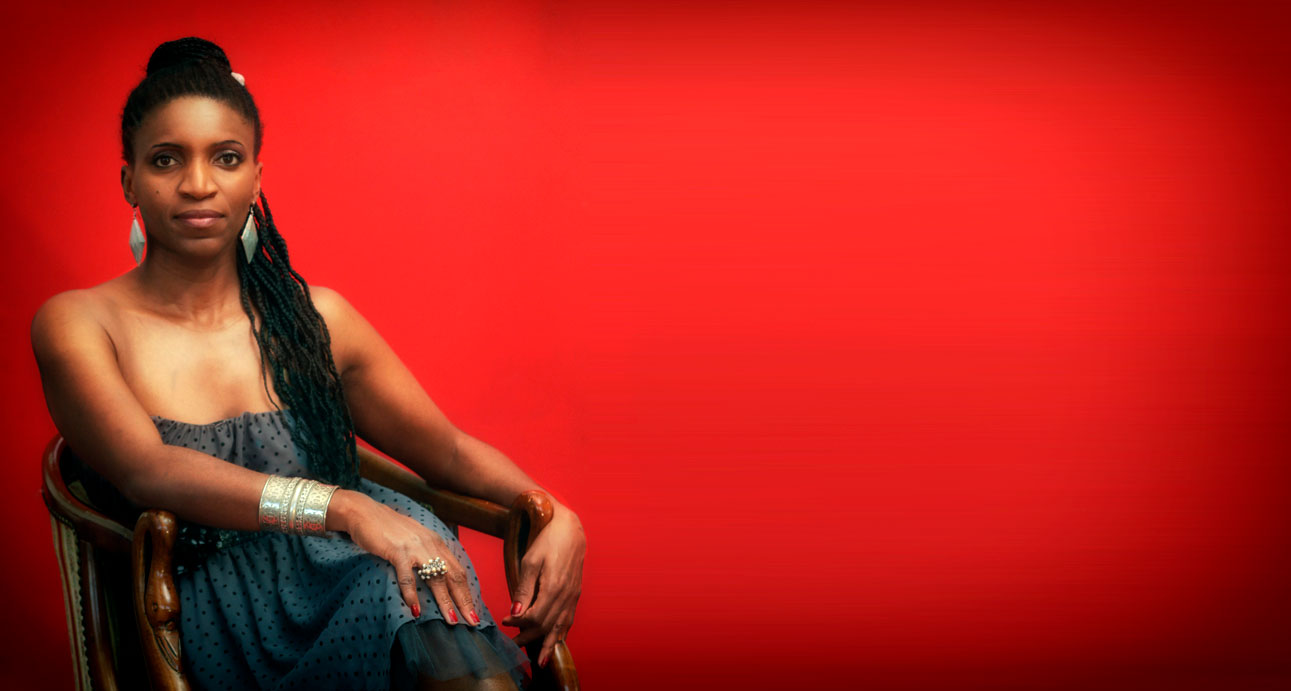
Ivonne´s Music
Ivonne´s Project
Blackening Wikipedia
Ivonne González (singer, musician, and performer) with the Black Guiris Collective of Rogelio Lorda (dancer), Jorge Moré Calderon (dancer), Ibrahim Boureima (musician), Nicolás Spinosa (video performer)
Musical and dance performance
Black, black, black! This is the motto of the work in progress created by Ivonne González, a performer and activist against racism and for the rights of migrants. The participatory performance evolves in relation to space, dance, bodies and painting in real time. Music, video, and poetry are combined to create a piece impregnated with the color of ebony. For Ivonne González, blackening the virtual discourse is a necessity, a political and artistic act, that must be expressed without spatial limits, where blackness in all its nuances and forms has been postponed for so long.
Further information
Photos